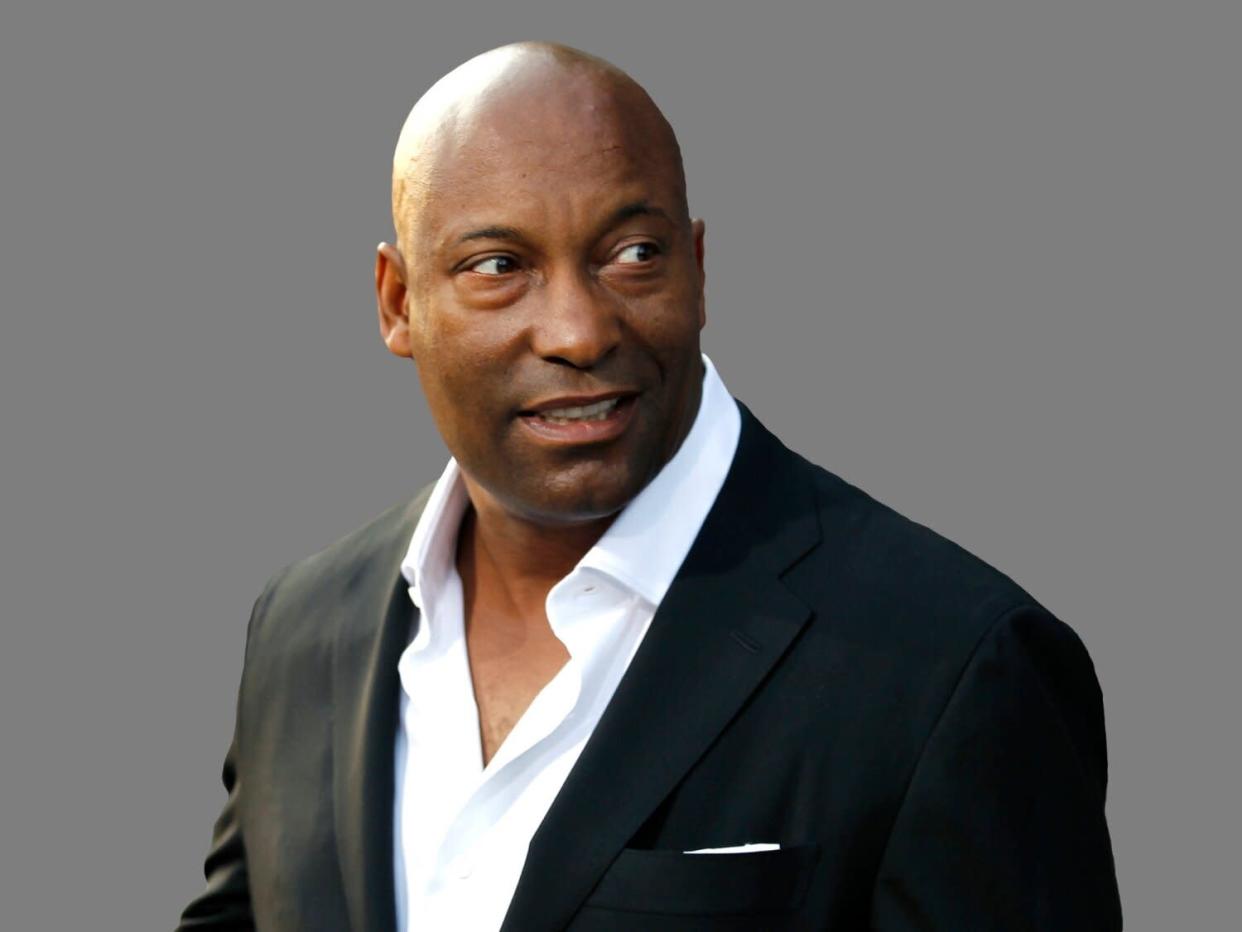John Singleton's family raises awareness about hypertension, the 'silent killer'

Just weeks after writer and director John Singleton suffered a severe stroke, his family revealed Monday that they’d taken the Boys n the Hood creator off of life support.
“We are grateful to his fans, friends and colleagues for the outpouring of love and prayers during this incredibly difficult time,” the family told Variety. “We want to thank all the doctors at Cedars Sinai for the impeccable care.” Tributes began to pour in for Singleton, an Academy Award winner and history-making director.
RIP John Singleton. So sad to hear. John was a brave artist and a true inspiration. His vision changed everything.
— Jordan Peele (@JordanPeele) April 29, 2019
This is very sad - John Singleton is a true trailblazer https://t.co/drsZEedVwd
— Samhita Mukhopadhyay (@TheSamhita) April 29, 2019
RIP John Singleton. To create a film as culturally significant as Boyz n the Hood and also a popcorn movie as fun as Shaft is true talent. Will miss his voice
— Ike Barinholtz (@ikebarinholtz) April 29, 2019
But while fans focused on the powerful, groundbreaking nature of his work, Singleton’s family chose to highlight the devastating effects of high blood pressure.
“Like many African Americans, Singleton quietly struggled with hypertension. More than 40 percent of African American men and women have high blood pressure, which also develops earlier in life and is usually more severe,” the statement continues. “His family wants to share the message with all to please recognize the symptoms by going to Heart.org.”
So what is this condition and why is it so dangerous? Here are five important facts:
Hypertension (or high blood pressure) is extremely common.
The Singleton family’s statement sheds light on an often-overlooked issue in America. According to the Centers for Disease Control and Prevention (CDC), more than one third of Americans (or 75 million people) currently have high blood pressure. Only 54 percent of those, says the CDC, have it under control.
When left untreated, it can lead to deadly health consequences.
Based on the CDC’s most recent statistics, over 360,000 deaths in America each year are connected to high blood pressure, with complications that include stroke, heart attack, heart failure, and kidney disease. An estimated seven in ten people experiencing their first heart attack, says the CDC, have high blood pressure, and eight in ten people who suffer a stroke do too.
Adjusting diet and lifestyle can be hugely beneficial.
Although there is medication to treat high blood pressure, doctors at the Mayo Clinic note that regular exercise, a diet rich in fruits and vegetables, and commitment to not smoking can all make a big difference. Doctors now suggest a specific diet — Dietary Approaches to Stop Hypertension, or the DASH diet. The plan includes limited sodium, six to eight servings of grains, four to five servings of vegetables, and four to five servings of fruit a day.
Another major factor is stress.
While lack of exercise and unhealthy diet have been linked to hypertension, another important contributing factor is stress. According to the Mayo Clinic, stress leads to a spike in the hormone cortisol, which causes your heart rate to increase and blood vessels to narrow. Over time, this can increase your chance of heart attack and stroke. Reducing stress levels can help lower blood pressure.
African Americans are far more likely to have hypertension.
As Singleton’s family noted, African Americans are disproportionately affected by hypertension. According to the American Heart Association, the more than 40 percent of African Americans who suffer from hypertension often develop it early in life. While researchers haven’t narrowed down a single cause for this, leading theories suggest that higher rates of obesity and diabetes may be to blame. Others are studying potential genetics, including a gene that may increase sensitivity to sodium.
Read more from Yahoo Lifestyle:
Follow us on Instagram, Facebook and Twitter for nonstop inspiration delivered fresh to your feed, every day.
